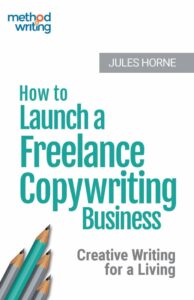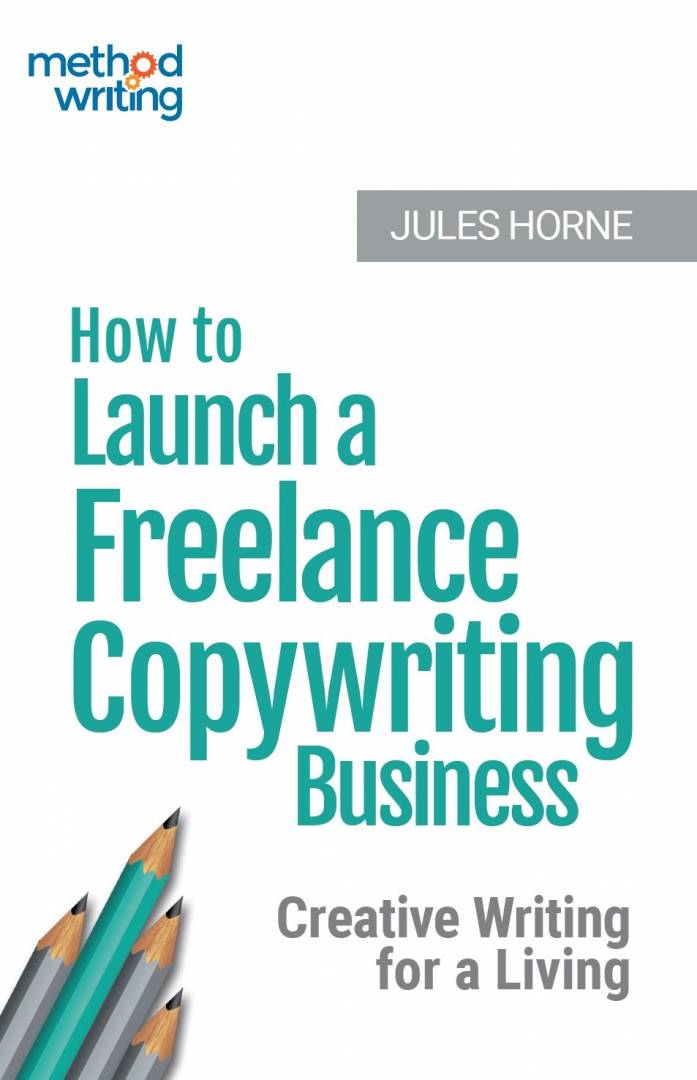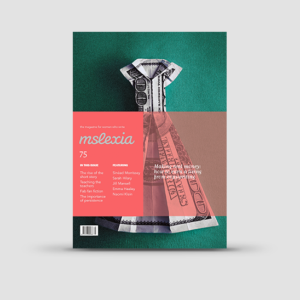
Creative writing tutor Jules Horne shares her top tips for building a freelance copywriting business
Like to increase your income from writing and wondering whether there's another way besides self-publishing books? Scottish writer and creative writing tutor Jules Horne makes a powerful case for setting up your own copywriting business, not only to add a valuable extra income stream but also to broaden your life experience and provide more fuel for your books.
Creative writing courses are great – I teach on one (the Open University MA)! But while many courses talk about transferable writing skills and employability in areas such as copywriting and marketing, they rarely explain the practicalities.
So, while many writers struggle to make a living from their words (see MsLexia 73), they often overlook an obvious source of freelance writing work that’s flexible, decently paid, and gets you out and about in your community.
I’ve walked the walk as writer, journalist and owner of Texthouse, my copywriting business. Writing can be lonely, and one fabulous benefit of copywriting is meeting the wonderful entrepreneurs – builders, chocolatiers, and even cow wranglers – in my rural part of Scotland. So, if you’re interested in getting started in writing for business, here are some of the transferable skills you can draw on.
Storytelling
Storytelling is big news in business. Companies know they need to tell a good story to connect with customers. As a creative writer, you can spot a story spark that excites you and will resonate with others, and turn it into a compelling narrative, with a hook, challenge, and resolution. This is exactly the structure used by business storytellers. And yes, it’s a thing.
- Bonus: behind-the-scenes detail and atmos for your novel.
Characterisation
Businesses need to know their customers inside out. Since they can’t speak to every single one, they sometimes use customer avatars to imagine different kinds of customer for different market segments. Customer avatars are pretty well characters by another name. They have names, ages, traits, preferences, and geographical and social backgrounds. Your understanding of characters and their psychology can help businesses to clarify who their customers are, and how to engage with them.
- Bonus: a fresh viewpoint on a broad range of characters.
Editing
The copywriting on small company websites is usually done in-house, by the owner or (if they’re lucky) someone in marketing. These people are rarely trained and experienced writers. They may not even realise that their copywriting is letting down their business with spelling mistakes, clunky expression, jargon, and unattractive layout. Your sharp editorial eye and sense of style can brighten up their copy and get their message across clearly and effectively.
- Bonus: background on how a different industry works.
Description
One challenge for online businesses is how to reach out beyond the screen. Their products may feel lush and gorgeous, smell beautiful, taste divine, and sparkle in the light, but a flat computer monitor won’t get that across. Your descriptive skills and understanding of sensory detail can help to bring products to life, by harnessing the readers’ imagination. Lemon chocolate truffles with aromatic Italian coffee, anyone?
- Bonus: test-driving products before you can write about them.
Voice and Viewpoint
Businesses are often steeped in their day-to-day operation and may struggle to make the imaginative leap needed to connect with customers. They may also use insider jargon that’s alienating for the very people they want to reach. As a creative writer, you can make that imaginative leap of empathy, and stand in the customer’s shoes.
- Bonus: a grasp of the language and voices of a different world.
Clear Thinking
 Many business people shy away from the written word, and struggle to articulate their business ideas clearly. That’s hardly surprising – businesses are constantly in flux, and highly complex. But it’s amazing how the right words at the right time can help to cut through the complexity, and bring focus and clarity. Your clear way with words can play a part in shaping a company’s strategy and future.
Many business people shy away from the written word, and struggle to articulate their business ideas clearly. That’s hardly surprising – businesses are constantly in flux, and highly complex. But it’s amazing how the right words at the right time can help to cut through the complexity, and bring focus and clarity. Your clear way with words can play a part in shaping a company’s strategy and future.
- Bonus: insight into the work of business managers.
Your creative writing skills are valuable and transferable to business. Writing for business also gives you privileged insight into fascinating hidden worlds on your doorstep.
If you’re a creative writer interested in the transition to copywriting, whether as your main income, or as a freelance strand, it will pay you to consider launching a freelance copywriting business, as outlined in my new book, How to Launch a Freelance Copywriting Business. For a free copywriting blueprint, see my newsletter at www.method-writing.com.
OVER TO YOU Do you have any particularly successful examples of commercial copywriting that you've done? We'd love to hear about them!
#Indieauthors - which of these 6 compelling reasons to consider an additional freelance career in commercial #copywriting apply to you? Probably all of them! By @JulesHorne, creative writing tutor #ww Share on XOTHER USEFUL POSTS ABOUT RUNNING AN AUTHOR BUSINESS
From the ALLi Author Advice Center Archive






Really interesting. Thank you!
Excellent points, all of them. Thank you for them with us!